Death Wish (1974)
“What about the old American custom of self-defense? If the police don’t protect us, we ought to do it ourselves.”
|
Synopsis: |
|
Genres, Themes, Actors, and Directors:
Response to Peary’s Review: Peary adds that it’s “no wonder” Bronson’s “liberal New York architect Paul Kersey” became “a hero to millions of moviegoers,” given “how director Michael Winner stacks the deck to make vigilante justice the only recourse against widespread crime.” He further notes that the film “makes the absurd assumption that every person who demands money from Kersey is planning on killing him and, therefore, must be killed instead of just being scared away.” (I actually don’t think this assumption is being made — rather, Bronson is sick and tired of criminals getting their way, and doesn’t really care what their motive is.) Peary adds that the “film’s most interesting aspect is that Kersey gets physically ill from his initial killings”: He notes, “I wish this had been emphasized a bit more and that someone other than Winner had directed (Robert Bresson would be the dream choice).” While Peary asserts that Bronson “was the right person to play Kersey, who would reprise his character in Winner’s two atrocious sequels,” I find his one-note performance distinctly lacking: Why doesn’t this guy react with even a little bit more emotion after the death of his beloved wife? (Poor Hope Lange’s role is throwaway at best.) We’re led to believe that he’s simply channeling his grief into vengeance, but where’s the grief itself? See the “Every Wrong with Death Wish in 13 Minutes” video clip for affirmation about all the other inconsistencies and inanities littering this film. There are a couple of “notable” cameos to be on the lookout for: Jeff Goldblum has an embarrassingly awful role as one of the three thugs asssaulting Bronson’s family: … and Ghristopher Guest shows up as the policeman who finds Bronson’s gun: Notable Performances, Qualities, and Moments: Must See? Links: |
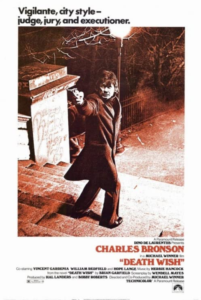
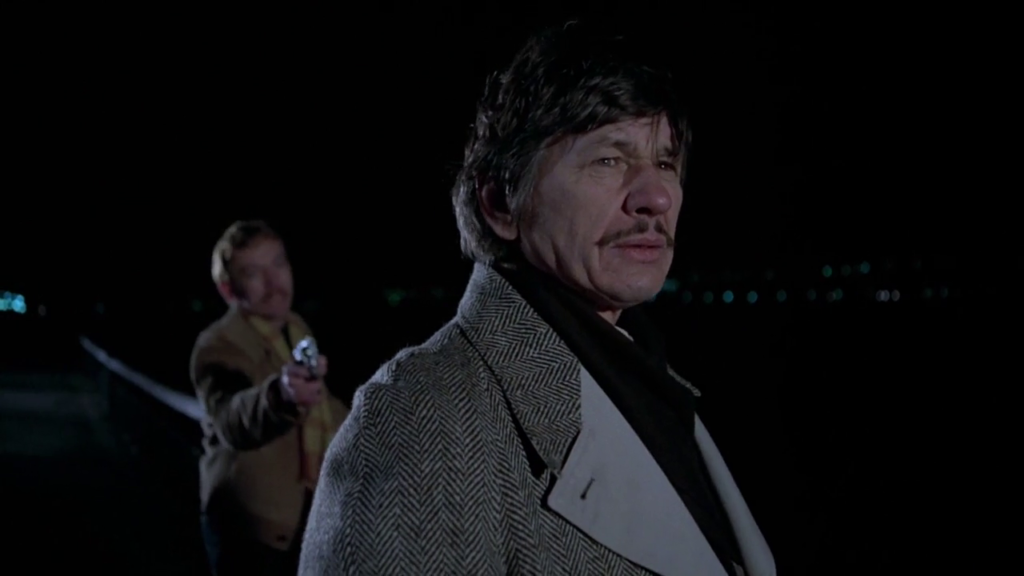
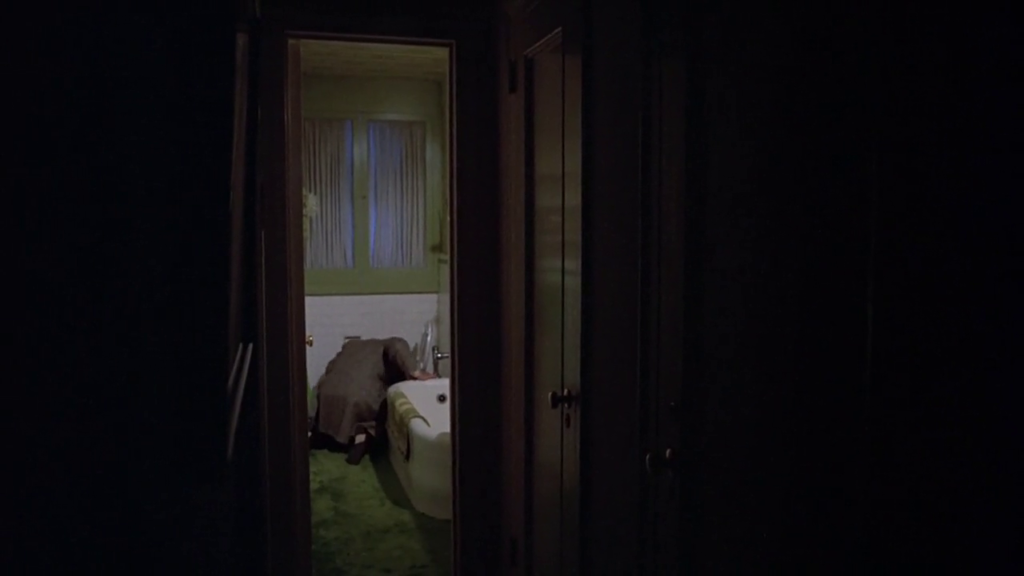
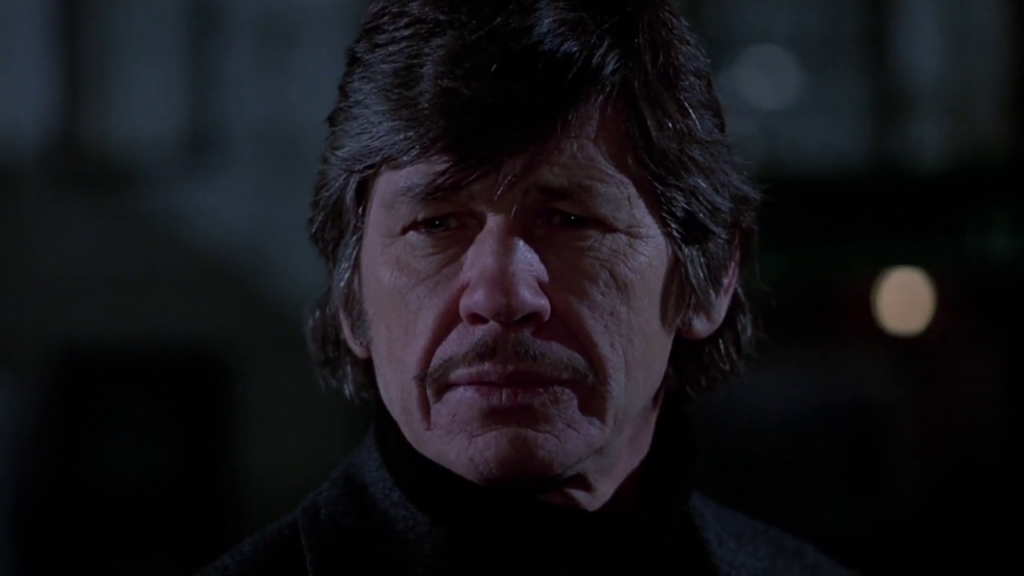
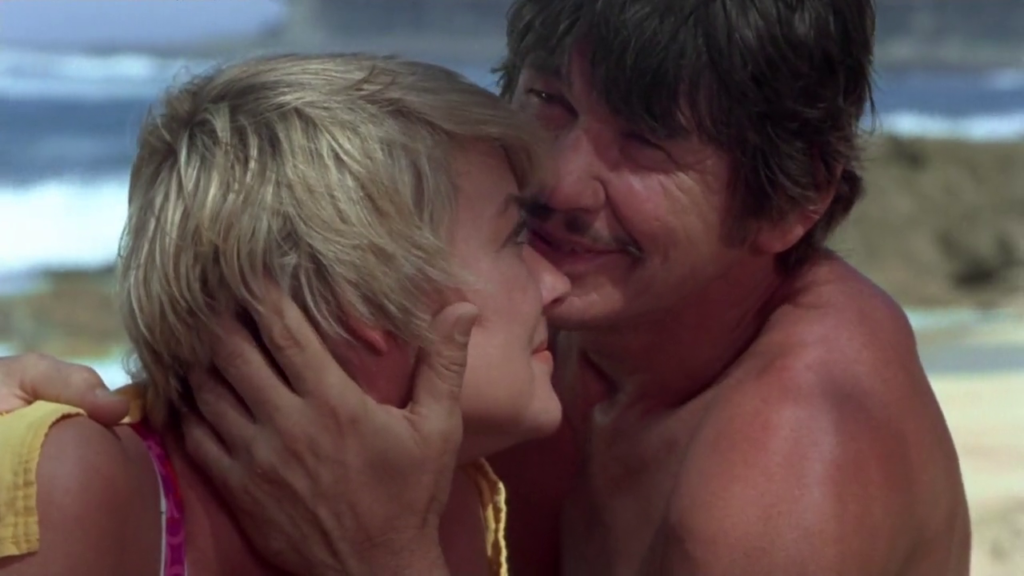
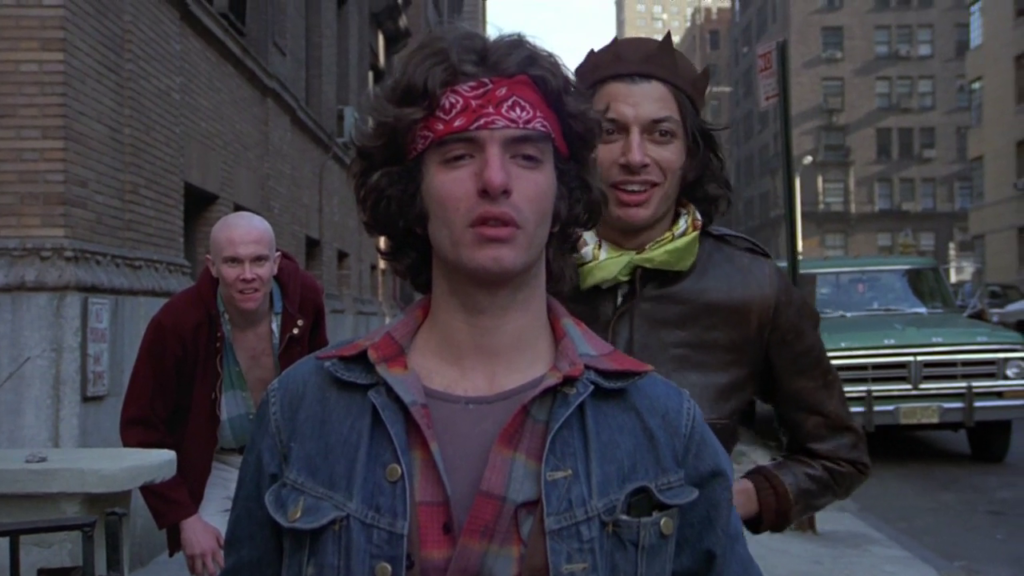
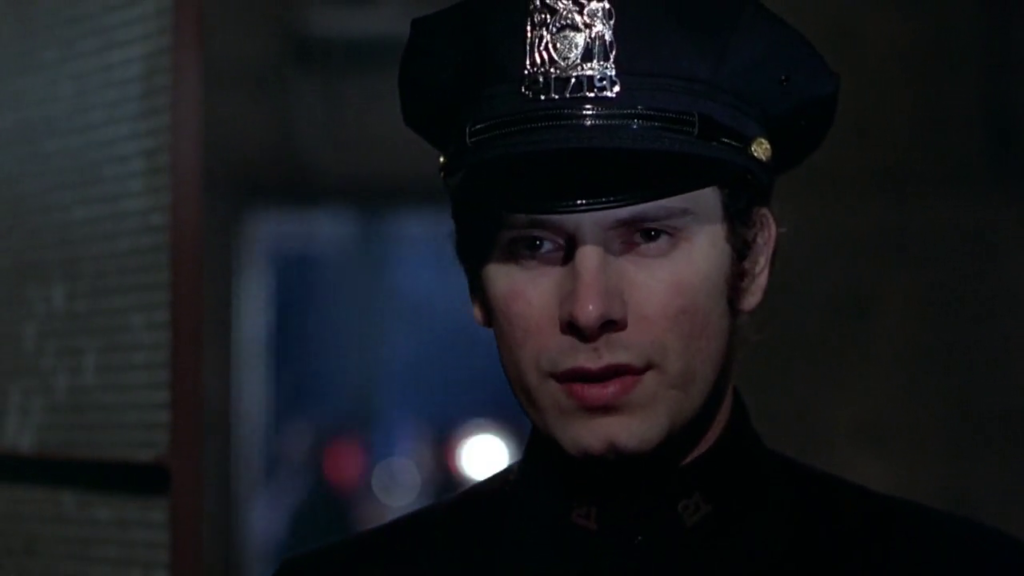
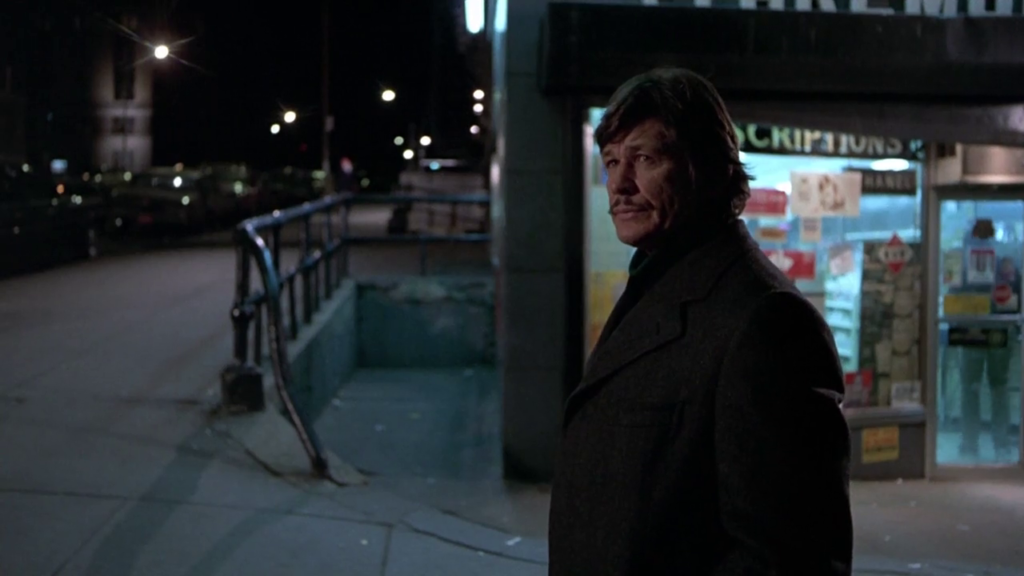
2 thoughts on “Death Wish (1974)”
(Rewatch 11/29/20):
Not must-see – but it holds interest for those concerned with the troublesome issue of the gun culture in the United States.
Bronson subsequently made a strange statement about the film: “I certainly don’t advocate anyone taking the law into their own hands. I don’t think that the film advocates that, either. If my films have a lesson, it’s that violence doesn’t pay. My opinion is that violence only breeds violence.” Bronson’s agent didn’t agree with him re: the message of the film.
“After viewing the film, Brian Garfield [author of the original novel] was dissatisfied with the result of the adaptation of his novel, due to its advocacy towards vigilantism, so he wrote a sequel called ‘Death Sentence,’ which dealt with the consequences of vigilantism.”
“Death Wish is said to have inspired several copycat incidents of vigilantism around the country. Probably the most famous is the 1984 NYC subway shootings of four youths by Bernard Goetz who was approached by… teens on the subway (who) had demanded money. The four were all shot and wounded by Goetz, whom the New York tabloids would call the ‘Death Wish’ vigilante.”
(All quotes from Wikipedia.)
NOTE: Also among the “notables” is Olympia Dukakis as a policewoman.
⭐️⭐️⭐️1/2 out of ⭐️⭐️⭐️⭐️
One of the key American urban thrillers of the early ’70s that were hugely influential on crime cinema. The others being Dirty Harry, The French Connection (both 1971) and Serpico (1973); all are must see in my opinion.
This one nicely questions the morality of vigilantism and its effect on the humanity of the vigilante. Quite seriously underrated probably due to the trashy (albeit guiltily enjoyable) sequels and the remake.
This one stands on its own and is significant to the debate on guns in the US and how the populace seem to think it’s the most important right they have; a national sickness. Especially more recently.